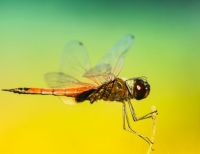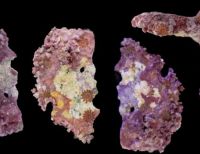
Phineas the cat has cerebellar hypoplasia that causes his famous 'wobble'.
A wobbly "scouse" cat named Phineas belonging to two married biomedical researchers at the University of Sydney has become an internet sensation, capturing the hearts of millions worldwide and securing a prominent place in the “meme cat” hall of fame with over 1.8 million followers on TikTok and Instagram.
Phineas’s iconic wobbling is caused by cerebellar hypoplasia – a condition that affects his coordination and balance. His owners, Drs Daria and Collin Anderson, who earlier this year joined the University’s School of Biomedical Engineering and School of Medical Sciences from the United States, research epilepsy, disorders of the cerebellum, Parkinson's disease, and Tourette syndrome.
The Andersons’ research focuses on human conditions and living with Phineas has helped mould the way they think about the cerebellum. He has become a fun part of their teaching when lecturing on movement and the cerebellum, and through social media has emerged as a source of inspiration for people living with rare neurological disorders.
How Phineas came to be an influencer in neurological diseases hails back to 2016, when the Andersons were working as early career researchers at the University of Utah. It was one night when scrolling through social media that the couple stumbled upon a captivating story of a stray mother cat and her kittens.
"Among the litter, two kittens failed to meet their developmental milestones and were diagnosed with cerebellar hypoplasia, otherwise known as "wobbly cat" syndrome – a condition similar to the disorders we study in humans,” Daria said.
“We were so captivated by their plight and thought to ourselves ‘we could really use our own experience in neurological disorders to help one of these kittens’, so we decided to adopt the runt of the litter – who at that point was just a tiny, ginger ball of fluff. It played out a bit like a movie – Collin braved a 3,000km flight across to Virginia in a snowstorm to bring the tiny little kitten to his forever home.”
















